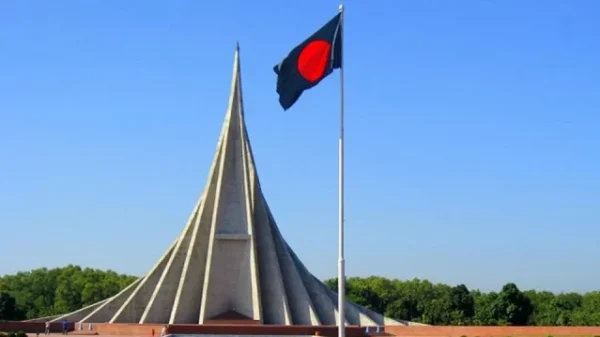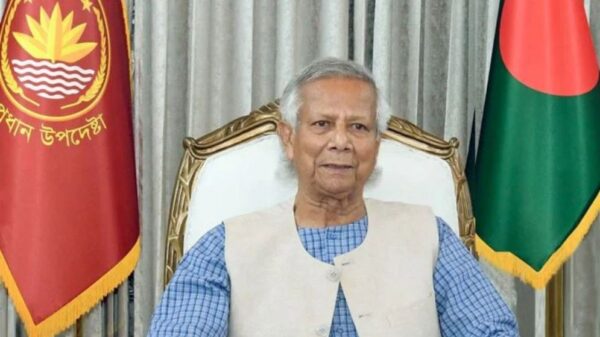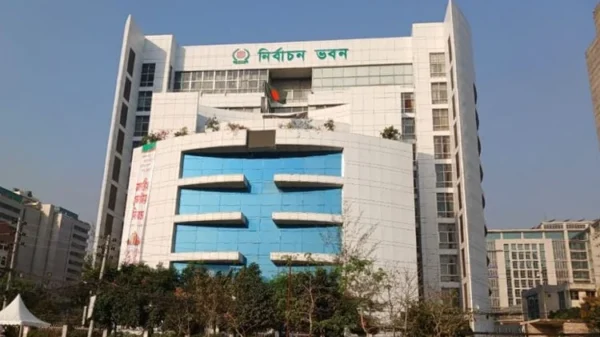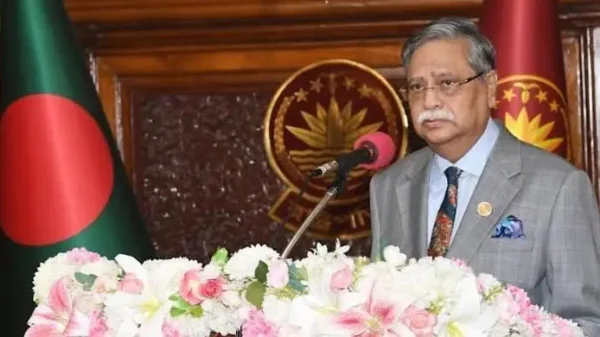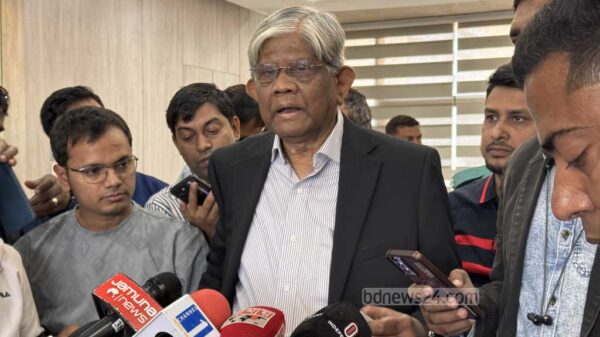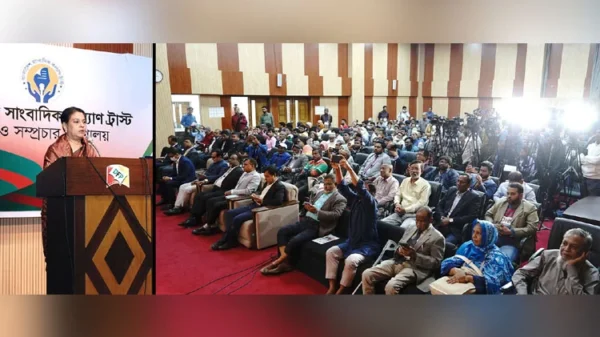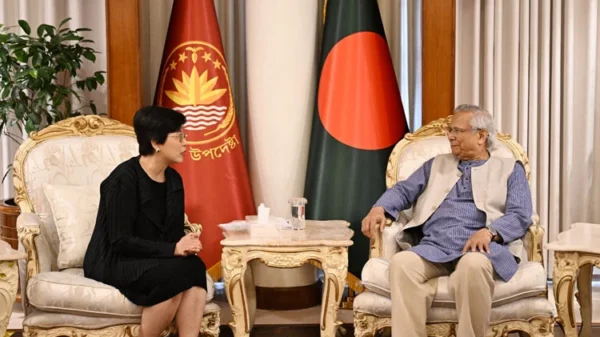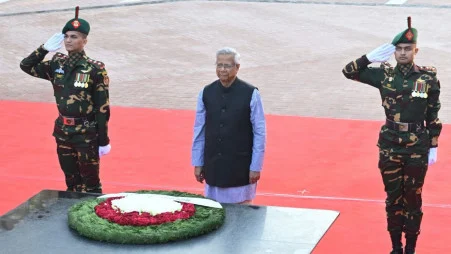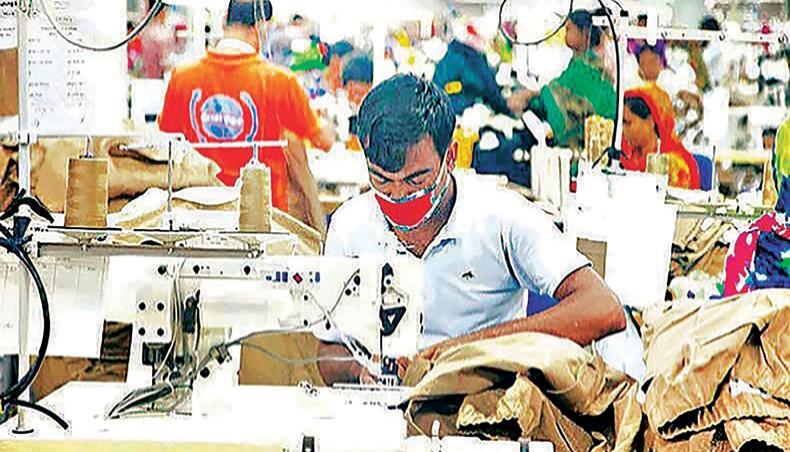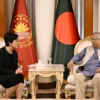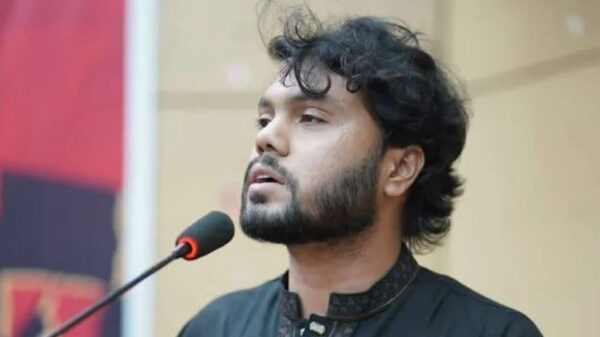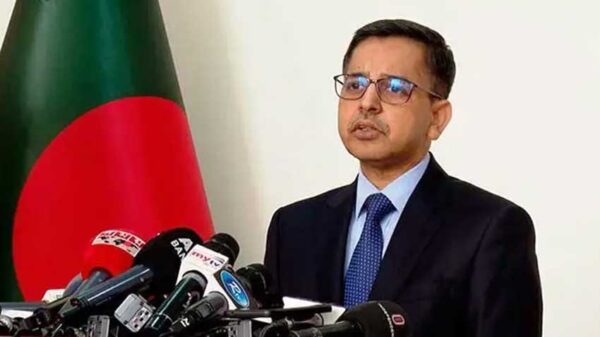Staff Reporter:
Representatives of trade unions and workers organizations yesterday met the visiting delegation of the European Union (EU) and discussed workers rights.
They acknowledged the important role of the EU, noting that the EU is the largest trading partner of Bangladesh.
They conveyed to the visiting delegation that there might be various types of problems but they want the trade relations to continue and develop further.
“These are the two messages we conveyed to the EU team,” one of the leaders told the media after the meeting.
They also suggested the EU delegation talk to the government and BGMEA, making representations that can contribute to bettering the human and labor rights situation.
The EU delegation members wanted to hear from the leaders about the current labour issues.
“We are expecting that a stable situation will prevail,” another participant of the meeting told the report-ers.
There is a demand for withdrawal of cases against the workers and release of the workers who are arrest-ed on charge of vandalism and the demand will be placed through a press conference on Wednesday.
Paola Pampaloni also had wide-ranging exchanges on labour and human rights with senior government figures, including State Minister for Labor and Employment Begum Monnujan Sufian and PM’s Princi-ple Secretary Md. Tofazzel Miah.
On Monday, the EU team exchanged views with the Rohingyas in the camps in Cox’s Bazar and assured them of their continued support.
Deputy Managing Director for Asia and the Pacific at the European External Action Service (EEAS) Paola Pampaloni is leading the delegation.
EU Ambassador to Bangladesh Charles Whiteley are accompanying the visiting delegation members dur-ing the meetings.
The delegation arrived in Dhaka on Sunday to have discussions with relevant stakeholders on the coun-try’s labor sector.
They will have a meeting over lunch with labor, commerce and foreign secretaries of the government on Wednesday apart from their talks with other relevant stakeholders.
The visit is aimed at taking “stock of progress” in implementing the National Action Plan for the labour sector, Ambassador Whiteley told.
Bangladesh adopted a National Action Plan (2021-2026) on the labor sector and the plan is closely linked to the roadmap submitted by the government of Bangladesh to the ILO Governing Body as the result of an Article 26 complaint.
The roadmap aims to improve the country’s observance of labour rights including freedom of association and the right to collective bargaining.
Last month, Ambassador Whiteley said aligning labor law with international standards will be an “essen-tial element” for the European Parliament and the Commission in considering Bangladesh’s application for market access, the GSP+.
“Bangladesh has the option to accede to GSP+ which is the next most generous GSP program after the Everything but Arms (EBA),” he said at a seminar in Dhaka.


